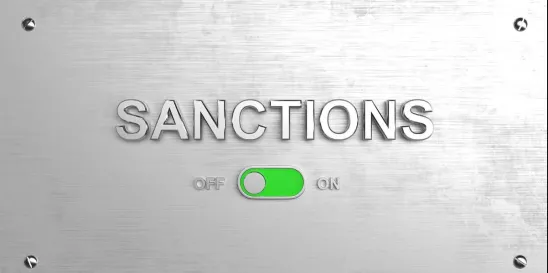The Office of Foreign Assets Control’s (OFAC) settlements in the second half of 2023 serve as cautionary tales for organizations navigating the complex landscape of international sanctions. These cases offer valuable insights into the importance of robust compliance programs. This article aims to dissect key elements commonly found in such enforcement actions, the types of apparent violations, and the lessons that can be drawn for effective sanctions compliance.
The Settlements: An Overview
OFAC’s recent settlements resolve potential civil liabilities arising from transactions that violated the Sanctions Programs and Sanctions Regulations (ITSR). These transactions often involved subsidiaries and intermediaries selling specialized products to sanctioned entities. OFAC's determinations in these cases were influenced by whether the actions were egregious and voluntarily self-disclosed.
Elements of the Apparent Violations
The Initial Proposals and Misunderstandings
The apparent violations in these cases can be attributed to a confluence of factors and events that reveal systemic weaknesses in compliance mechanisms. These include:
- Failure to Identify Actual End-Users - Organizations often neglect to accurately identify the ultimate recipients of their products, thereby increasing the risk of transactions with sanctioned or high-risk entities. Understanding the entire supply chain is crucial, as failure to do so can lead to inadvertent involvement with high-risk entities.
- Inclusion of U.S. Persons in Transactions - The involvement of U.S. persons in transactions without proper due diligence or authorization contravenes OFAC regulations and exposes the organization to legal repercussions.
- Senior Executive Liability - In OFAC enforcement actions, senior executives can be held personally liable for violations, facing financial penalties and potentially criminal charges. This adds a layer of risk, making compliance not just an organizational duty but an individual one as well. Executives must be vigilant in ensuring OFAC compliance to avoid personal legal repercussions, including substantial fines or imprisonment. Their involvement is crucial, as it complicates the organization's compliance landscape and necessitates risk management at both organizational and individual levels. The stakes for senior executives in ensuring compliance are exceptionally high.
- Inadequate Screenings and Licensing - Organizations often fail to conduct thorough screenings of parties involved in transactions or to obtain the necessary licenses. This oversight frequently results in non-compliance with OFAC sanctions.
- Mergers and Acquisitions - During mergers and acquisitions, due diligence is often conducted to assess compliance with various regulations, including OFAC sanctions. However, this due diligence must not end once the merger or acquisition is finalized. The acquiring or merged entity must continue conducting rigorous screenings and obtaining necessary licenses to ensure ongoing compliance with OFAC regulations. Failure to extend due diligence into the post-merger or post-acquisition phase can expose the newly formed organization to legal risks, including financial penalties and reputational damage.
- Ignoring Red Flags from External Due Diligence Reports - Despite receiving external reports highlighting potential risks or affiliations with sanctioned entities, organizations frequently disregarded these critical warning signs. In mergers and acquisitions, external due diligence reports are often commissioned to assess compliance risks, including potential affiliations with sanctioned entities. While these reports are invaluable for pre-acquisition assessments, their importance extends into the post-acquisition phase. Any red flags or warning signs identified must not be overlooked or dismissed after the merger or acquisition is complete. Failing to act on these red flags can result in severe legal repercussions for the newly combined entity, including financial penalties and reputational harm.
These factors collectively point to a lack of robust internal controls and a failure to adhere to established compliance protocols. The lapses indicate individual errors and systemic issues that require immediate attention to fortify the organization's compliance posture.
Internal Policies and Ignored Red Flags: A Closer Look at Organizational Lapses in OFAC Compliance
Many organizations have meticulously crafted internal guidelines, policies, and procedures to ensure strict compliance with the OFAC sanctions. These frameworks are often comprehensive and designed to cover every conceivable scenario that might necessitate scrutiny under OFAC regulations. However, the practical implementation of these policies frequently falls short, revealing significant gaps in effectiveness and adherence. The role of senior management in ensuring compliance cannot be overstated, as their involvement or lack thereof can be a critical factor in the effectiveness of an organization's compliance posture.
One of the most glaring issues is the tendency among staff members to overlook critical warning signs. This is particularly concerning when external due diligence reports, commissioned to provide extra scrutiny, flag potential affiliations with entities subject to sanctions. Ignoring such red flags not only jeopardizes the organization's compliance status but also raises questions about the efficacy of its due diligence processes.
Moreover, there are often lapses in internal communication that exacerbate these issues. For instance, when transaction details change — such as the parties involved or the nature of the goods or services being exchanged — these modifications are not always promptly communicated to the relevant compliance or Trade Compliance departments. This communication breakdown creates a loophole that can be exploited to circumvent internal oversight mechanisms and controls.
These collective lapses point to a deeper, systemic issue: failure to operationalize well-intended policies into day-to-day practices that ensure OFAC compliance. Such shortcomings undermine the organization's efforts and expose it to significant legal and reputational risks. Therefore, organizations must address these gaps through rigorous training, enhanced communication channels, and continuous monitoring to fortify their compliance posture.
Penalty Calculations and General Factors Analysis
When calculating the final settlement amounts for its sanctions violations, the OFAC employs a nuanced approach considering various aggravating and mitigating factors. This methodology aims to provide a balanced assessment that reflects the severity of the violation while also considering any proactive measures taken by the organization to comply with OFAC regulations.
Aggravating Factors: OFAC places significant weight on aggravating factors, which often serve to increase the penalty amount. These factors commonly include willful violations of U.S. sanctions laws, indicating a deliberate intent to circumvent the regulations. Additionally, reckless handling of sales, such as failing to conduct due diligence or ignoring red flags, can be an aggravating factor. These elements collectively exacerbate the organization's culpability and indicate systemic failures in compliance mechanisms.
Mitigating Factors: On the other side of the equation, OFAC also considers mitigating factors that may reduce the penalty amount. These often encompass robust, risk-based OFAC compliance programs demonstrating the organization's commitment to U.S. sanctions laws. Voluntary self-disclosures, where the organization proactively reports violations to OFAC, are also viewed favorably. These actions suggest a level of organizational transparency and a willingness to rectify compliance shortcomings.
In sum, OFAC's approach to determining final settlement amounts is a multifaceted process that seeks to balance the severity of the violation against the organization's efforts to maintain compliance. This comprehensive analysis ensures that penalties are punitive and fair, considering the broader context in which the violations occurred. Therefore, organizations would do well to understand these general factors as they work to enhance their compliance programs and mitigate potential risks.
Compliance Considerations: Lessons Learned and Best Practices for Navigating OFAC Sanctions
- Robust Sanctions Compliance Programs (SCPs)
- Recent OFAC enforcement actions have highlighted the imperative for companies and organizations to develop dynamic, comprehensive SCPs, which need to be well-designed and effectively implemented to mitigate risks. These programs should be risk-based and designed to effectively mitigate direct and indirect OFAC-related risks. Key elements of a robust SCP include senior management commitment, regular risk assessments, internal solid controls, periodic testing and auditing, and comprehensive employee training.
- Senior Management Commitment
- Review and Approval - Senior management sets the tone for organizational compliance, and their active involvement can either mitigate or exacerbate compliance risks. Senior management should review and approve the SCP, granting compliance units the authority and autonomy they need to manage OFAC risks effectively.
- Resource Allocation - Adequate resources, both human and financial, should be allocated to compliance units, taking into account the organization's operational scope and unique risk profile.
- Regular Risk Assessments - OFAC advises organizations to conduct routine and, if necessary, ongoing risk assessments as a cornerstone of their risk-based approach to SCPs.
- Internal Controls
- Written Policies - Articulated written policies and procedures should be in place.
- Identification and Reporting Mechanisms - Effective internal controls must include mechanisms to identify, prevent, escalate, and report activities that could potentially violate OFAC regulations.
- Testing and Auditing
- Regular audits are crucial for evaluating the effectiveness of existing compliance processes and identifying any discrepancies between operational practices and OFAC requirements.
- Organizations must continually update their SCPs, including all related software, systems, and technologies, to address identified compliance gaps.
- Employee Training and Culture of Compliance
- Periodic Training - All relevant employees should undergo training at least annually.
- Job-Specific Knowledge - Training should be tailored to offer job-specific knowledge based on the role's needs.
- Clear Communication - The organization must clearly outline the sanctions compliance responsibilities for each employee.
- Accountability - Regular assessments should be conducted to hold employees accountable for their compliance responsibilities.
- Oversight and Due Diligence
- Intermediary Scrutiny - OFAC has increasingly directed its attention towards intermediaries and facilitators as critical actors in sanctions violations. Organizations should extend their oversight to these third parties to mitigate risks effectively.
- Dynamic Due Diligence - Due diligence is not a one-time activity but should be an ongoing, integral part of every SCP. This process should be dynamic, adapting to evolving regulatory landscapes, geopolitical shifts, and emerging risks.
- Post-Merger and Acquisition Audits - Given the complexities arising from mergers and acquisitions, due diligence must continue post-transaction to ensure that the integrated entity complies with OFAC regulations.
- Automated Screening Tools - Utilize automated screening and monitoring tools to keep track of sanctioned entities and high-risk jurisdictions, thereby enhancing the efficiency and effectiveness of due diligence efforts.
- Periodic Reviews and Updates - Regularly review and update due diligence protocols to reflect changes in OFAC sanctions lists, risk assessments, and internal audits, ensuring the SCP remains robust and current.
- The Role of Whistleblowers in OFAC Compliance
- Importance of Reporting - Emphasize the critical role of "seeing something and saying something" when misconduct is suspected or discovered.
- Whistleblower Channels - Establish and communicate channels for employees to confidentially report concerns without fear of retaliation.
- Investigative Processes - Implement procedures for conducting timely and thorough investigations into reported misconduct.
- Remedial Actions and Reporting - Outline steps for necessary remedial actions and reporting violations to OFAC.
- Active Cooperation - Ensure active cooperation in subsequent investigations by regulatory bodies such as OFAC.
OFAC's aggressive enforcement actions serve as a cautionary tale, emphasizing the need for organizations to invest in comprehensive, dynamic SCPs. These programs should be continually updated and rigorously tested to meet the evolving challenges of OFAC regulations.
Conclusion
OFAC’s recent settlements serve as poignant reminders of the intricate and challenging landscape organizations must navigate in international business, especially concerning sanctions compliance. These settlements underscore non-compliance, high-stakes and severe repercussions, ranging from financial penalties to reputational damage.
Given the complexities inherent in U.S. sanctions laws, organizations cannot afford to adopt a passive or reactive stance. Proactive measures are essential. This involves the establishment of robust, dynamic SCPs and continuously monitoring and updating these programs to adapt to evolving regulations and emerging risks.





 />i
/>i

